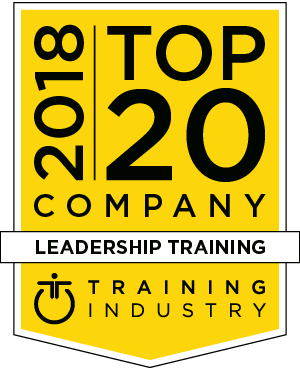The talent shortage is a pressing issue reshaping the job market. Discover the root causes and actionable strategies to build a robust talent pipeline in the consumer goods industry.
Understanding the Talent Shortages
The talent shortage in the U.S. has reached a critical stage, with nearly three in four employers struggling to find skilled talent in 2025, according to the ManpowerGroup Talent Shortage Survey. This is more than double the rate from a decade ago, indicating a systemic problem that is reshaping the job market across various industries.
Employers are hitting a wall when it comes to hiring, which directly impacts business growth, innovation, and bottom lines. Companies that fail to address this gap will see projects stall, productivity drop, and competitors pull ahead.
A Risk You Can’t Afford to Ignore
A lack of talent pipeline shortage isn’t just an HR issue—it’s a strategic risk that slows down growth, kills agility, and leaves organizations scrambling when it’s already too late. The real problem isn't failing to find talent when a role opens—it's knowing that role was coming and doing nothing to prepare. That’s unacceptable. In today’s talent market, you don’t find great talent when you need it—you find it long before you do.
That’s why recruitment teams must shift from reactive hiring to proactive pipeline building. Their core responsibility is not just filling open roles—it’s generating a steady flow of high-potential passive candidates every single day. Passive talent today is your top performer tomorrow. Without consistent outreach and relationship-building, companies will always be too slow to compete. Talent doesn’t wait for your headcount approval. Be ready, or be left behind.
Consumer Goods Industry: A Sector Under Strain
The consumer goods industry is particularly affected by the talent pipeline shortage. Post-pandemic workforce shifts have led to significant staffing shortages in key service roles within retail and hospitality. Many workers who left these sectors during the pandemic have not returned, making it challenging to maintain adequate staffing levels.
Despite the recovery to pre-pandemic employment levels by mid-2023, the industry still struggles with workforce stability. High turnover rates, especially in the leisure and hospitality sectors, exacerbate the issue, making it difficult to sustain a robust talent pipeline.
The Role of Digital Transformation in the Talent Shortage
The rapid pace of digital transformation has left many industries, including consumer goods, lacking talent with specialized technical skills. Integrating advanced technologies such as AI, machine learning, and big data into business operations requires employees with the technical expertise to manage, develop, and optimize these systems.
However, there is a significant shortage of professionals with these skills, making it challenging for companies to fill these roles. This digital skills gap is a critical factor in the ongoing talent shortage.
Innovative Strategies to Build a Skilled Workforce
To tackle the talent shortage, companies need to adopt innovative strategies to build a skilled workforce. Increasing wages and offering competitive compensation packages can attract talent and make your company more competitive in the job market.
Adopting a skills-first hiring strategy, where the focus is on capabilities rather than degrees, can also help. Practical tests and project-based evaluations allow candidates to demonstrate their abilities in real-world scenarios. Additionally, strengthening employer branding and improving candidate experiences are crucial to attracting top talent.
Future-Proofing Your Talent Pipeline
Future-proofing your talent pipeline involves strategic workforce planning to ensure your organization has the right people and skills in the right roles. Implementing effective workforce planning strategies can lead to increased productivity and decreased labor costs.
Rethinking where and how you source talent is also essential. Utilizing alternative recruitment strategies, such as recruitment process outsourcing (RPO), can help identify and attract high-quality candidates that might otherwise be overlooked through standard recruitment channels.
Why Being Proactive and Creating a Talent Pipeline with Passive Candidates is Crucial
Building a talent pipeline with passive candidates should be a daily routine task. It's crucial to be proactive rather than reactive in your hiring strategy. Passive candidates, who are not actively seeking new opportunities but are open to them, can be a valuable addition to your talent pipeline.
Engaging with these candidates regularly ensures that you have a ready pool of talent when a position needs to be filled. This proactive approach can save time and resources in the long run.
Companies Always Look for Talent When They Need to fill the position immediately
Many companies tend to look for talent only when they need to fill a position immediately. This reactive approach often leads to rushed hiring decisions and compromises on the quality of hires.
To avoid this, companies should continuously build and maintain their talent pipelines. This ensures that they have access to a pool of qualified candidates at all times, reducing the pressure and time constraints associated with immediate hiring needs.
Hiring Is Not Like Ordering Food from Uber Eats When You Are Hungry
Hiring is a complex and time-consuming process, unlike ordering food from Uber Eats when you are hungry. It requires careful planning, evaluation, and consideration of various factors to ensure the right fit for the role and the company.
Rushing through the hiring process can lead to poor hiring decisions, which can have long-term negative impacts on the organization. Therefore, it's important to approach hiring with the same level of diligence and attention to detail as any other critical business process.
Be Aware That You Are Dealing with a Human, and immediate Hiring might not be so fast
It's important to remember that hiring involves dealing with humans, not just filling a position. Immediate hiring might not always be feasible, as candidates need time to consider offers and make decisions.
Building relationships with potential candidates and understanding their needs and motivations can lead to better hiring outcomes. This human-centric approach ensures that both the candidate and the company are making informed and mutually beneficial decisions.

















